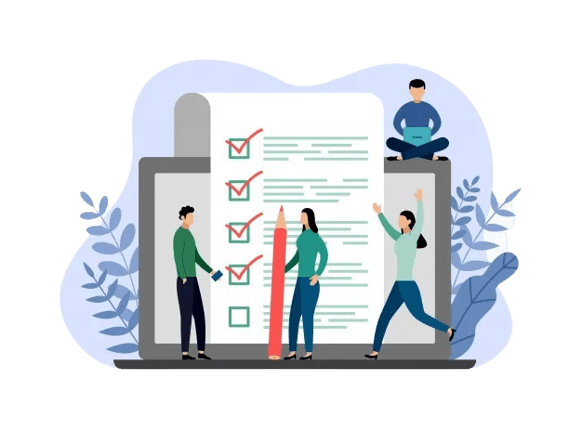Mental Contamination OCD Assessment
3 Min Free Mental Contamination OCD Assessment
Who Can Benefit From This Mental Contamination OCD Assessment?
The Mental Contamination OCD assessment can benefit individuals who experience intrusive thoughts, feelings of contamination, and engage in related compulsive behaviors. People who have concerns about moral or spiritual contamination, such as feeling tainted or dirty, can find value in this assessment.
It is particularly useful for those who may have Obsessive-Compulsive Disorder (OCD) with a specific focus on mental contamination. The assessment helps individuals gain insight into their symptoms, determine the severity of their condition, and seek appropriate professional help or treatment.

Mental Contamination OCD Assessment Accuracy

The accuracy of a Mental Contamination OCD assessment depends on various factors, such as the quality of the assessment tool, the expertise of the assessor, and the individual’s honesty and self-awareness in responding to the questions.
Assessments can provide valuable insights into an individual’s symptoms and help guide the diagnostic process. However, a comprehensive evaluation by a qualified mental health professional is crucial for an accurate diagnosis.
They consider multiple factors, including clinical interviews, observation, and other diagnostic criteria, to ensure a more accurate assessment and appropriate treatment planning.
Types of Mental Contamination OCD Assessment
Self-Perceived Contamination
Assessing the individual’s beliefs about being internally contaminated or morally tainted.
Object-Related Contamination
Evaluating the individual’s fear of contact with specific objects or situations due to contamination concerns.
Mental Rituals
Assessing the presence of mental rituals, such as mental cleansing or repetitive thoughts, performed to neutralize perceived contamination.
Sensory Contamination
Evaluating the individual’s sensitivity to certain sensory experiences, such as touch, sight, or sound, leading to feelings of contamination.
Social Contamination
Assessing the fear of being contaminated by other people or social interactions, resulting in avoidance or excessive cleanliness behaviors.
Moral Contamination
Evaluating feelings of moral impurity or guilt associated with certain thoughts, actions, or perceived violations of personal values or beliefs.
Handling Mental Contamination OCD
Handling Mental Contamination OCD can be challenging, but there are strategies that can help:
- Seek professional help: Consult with a mental health professional experienced in treating OCD. They can provide a proper diagnosis and develop a personalized treatment plan.
- Exposure and response prevention (ERP) therapy: This type of therapy gradually exposes you to situations that trigger mental contamination fears and helps you resist engaging in compulsive behaviors. It aims to reduce anxiety and desensitize you to the perceived contamination.
- Challenge distorted thoughts: Learn to identify and challenge irrational thoughts related to mental contamination. Cognitive-behavioral techniques can help you develop more realistic and balanced thinking patterns.
- Mindfulness and relaxation techniques: Practice mindfulness meditation or relaxation exercises to help manage anxiety and reduce the urge to engage in compulsive rituals.
- Build a support network: Connect with others who understand OCD and mental contamination. Support groups or online communities can provide encouragement and coping strategies.
- Self-care and stress management: Take care of your overall well-being by engaging in activities you enjoy, practicing self-care, and managing stress through healthy coping mechanisms like exercise, hobbies, and socializing.
Remember, everyone’s journey with OCD is unique, so finding the right combination of strategies may require some trial and error. Be patient and persistent in seeking help and implementing coping techniques that work best for you.

